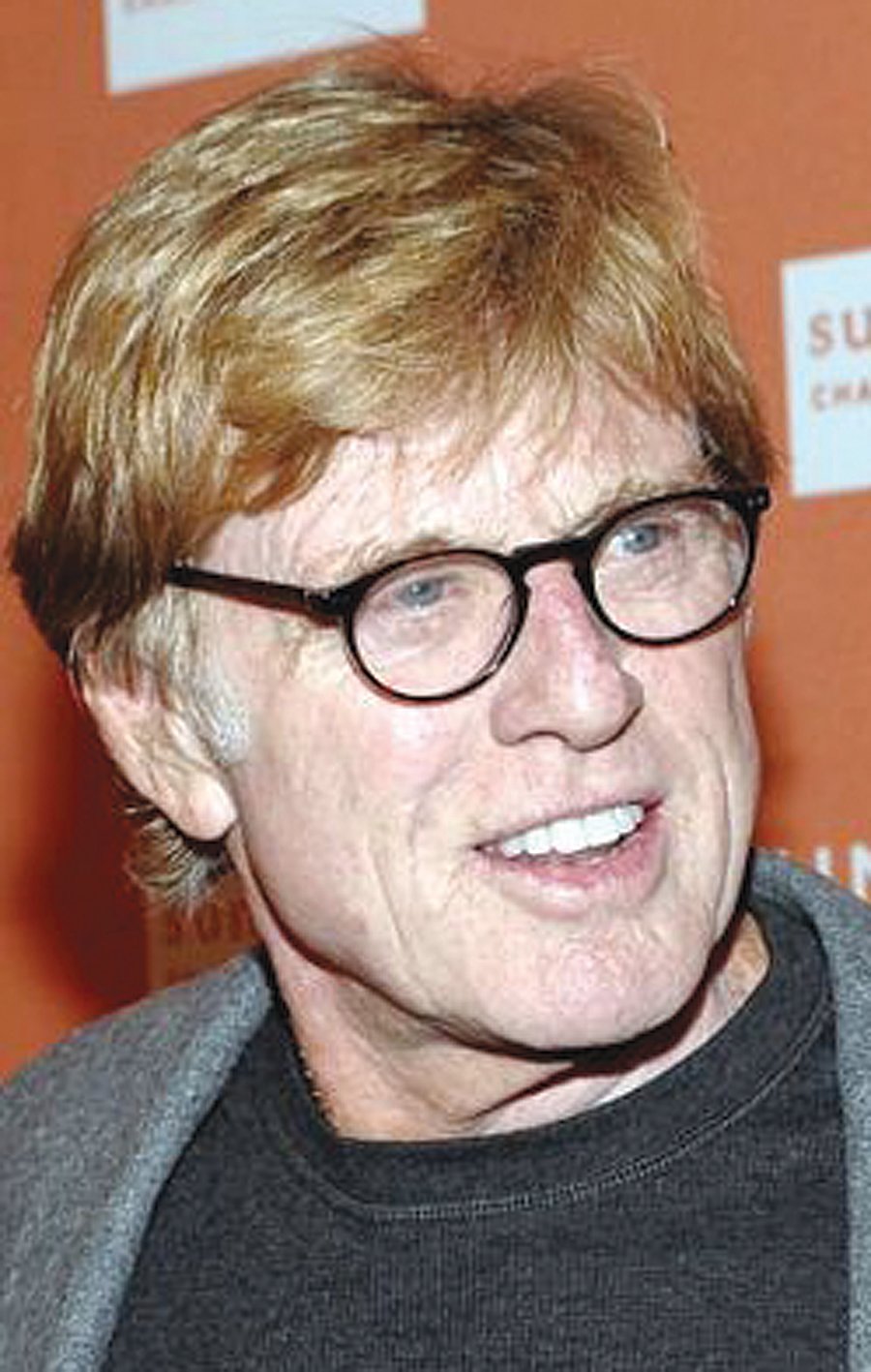Opinion: Don't let Trump pollute our lakes, streams

The real star of my 1992 movie, "A River Runs Through It," was not supposed to be Brad Pitt. It was supposed to be Montana's iconic Big Blackfoot River, which starts as a watery thread up near the Continental Divide and runs down to its confluence with the Clark Fork near Missoula, about 75 miles west. The Blackfoot was so badly degraded by decades of gold mining and logging waste, though, we shot the film instead mostly on the Gallatin River 200 miles away.
Today, the Blackfoot is on the mend, thanks to state and local action grounded in common-sense federal protections for clean water in our rivers, lakes, estuaries and bays.
If there's one thing, in fact, we should all be able to agree on as Americans, it's that clean water is life itself. Any threat to that imperils us all.
That's why we need to stand up to President Trump's attempt to replace the clean water rule with a flimsy substitute that would leave half the nation's wetlands and millions of miles of streams without the protection they need. That's what Trump plans to do by December, unless enough of us speak out before then.
On Sept. 12, the administration announced plans to formally repeal the regulation, also called the Waters of the United States rule, the most important measure we've taken in decades to protect water quality across the country. The rule clarified protections, under the Clean Water Act, for the wetlands, ponds and small streams that feed the drinking water sources for 117 million Americans while also providing flood protection, valuable recreational opportunities and vital habitat for birds, fish and other wildlife.
That's worth protecting. Trump, though, is putting it all at risk by repealing the rule. The substitute rule he expects to finalize in December would lack the protections we need to prevent oil and gas companies, shopping-center developers, factories, coal companies and others from contaminating our waters, sending the pollution downstream and leaving our families and communities to pay the price.
In fact, when Andrew Wheeler, the Environmental Protection Agency administrator, announced the formal repeal of the clean water rule this month, he did so, not at EPA headquarters or near a treasured body of water as we might expect, but at the National Association of Manufacturers, which fought the clean water rule tooth, nail and hair. Wheeler, a former coal lobbyist, decried the clean water rule as "an egregious power grab" by Washington, claiming it creates uncertainty for farmers and other property owners.
And yet, in the roughly half of the country where its implementation hadn't been halted by court challenges, the clean water rule set fair and consistent rules of the road for everyone. And the rule wouldn't affect normal farming and ranching operations.
Americans of both parties began working on clean water nearly 50 years ago. We have come a long way. You don't see worrisome debris and disgusting suds in our rivers the way we did when I was younger. It's been slow and steady work to clean these watersheds, and we still have a long way to go. Even today 8 in 10 Americans worry about pollution to our rivers, lakes and reservoirs.
Trump wants to leave it largely up to states to protect fresh water. Nothing in the clean water rule, though, stops states from doing so; it simply provides a minimum standard of protection nationwide. That's important for many reasons, including keeping one state's pollution from flowing downstream to another.
When he announced the new proposed rule, Wheeler said the rule was an example of regulatory "overreach. "
Consider that statement for a minute. Wheeler is supposed to be the nation's chief environmental steward, our last line of defense against toxic pollution and industrial ruin. Now he says it's a stretch to expect him to protect clean water?
It shows you how far down the rabbit hole we've gone with an administration that's waging the single worst administrative assault in history against our environment and health. Trump has tried to weaken, delay or repeal more than 80 different safeguards that protect the air we breathe, the water we drink and our lands, wildlife and habitat.
These are needed rules, each one grounded in sound science, the public interest and the rule of law.
The clean water rule was developed over many years and informed by more than 400 public meetings, more than 1,200 peer-reviewed scientific studies and public comments from more than a million Americans - small business owners, farmers, ranchers, anglers, hunters and others - 87 percent of whom said we need to protect clean water in this country, former EPA administrator Gina McCarthy testified before the Senate in 2015.
That's definitive. That's the voice of the American people. That voice needs to be honored, and it's on us to make sure it is.
Robert Redford is an actor, director and trustee of the Natural Resources Defense Council.
More Articles to Read
